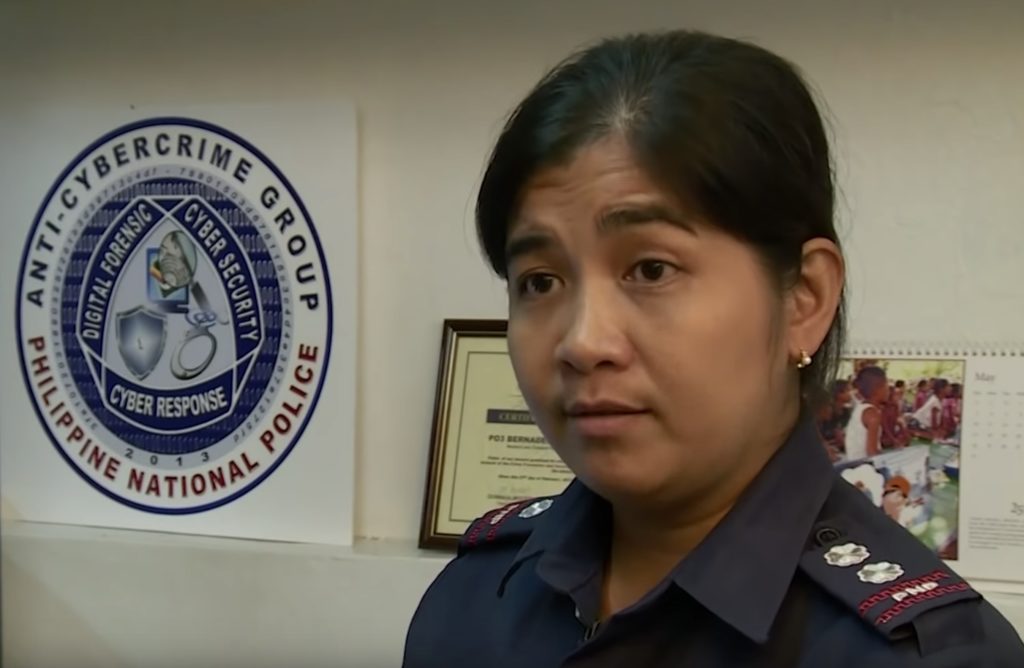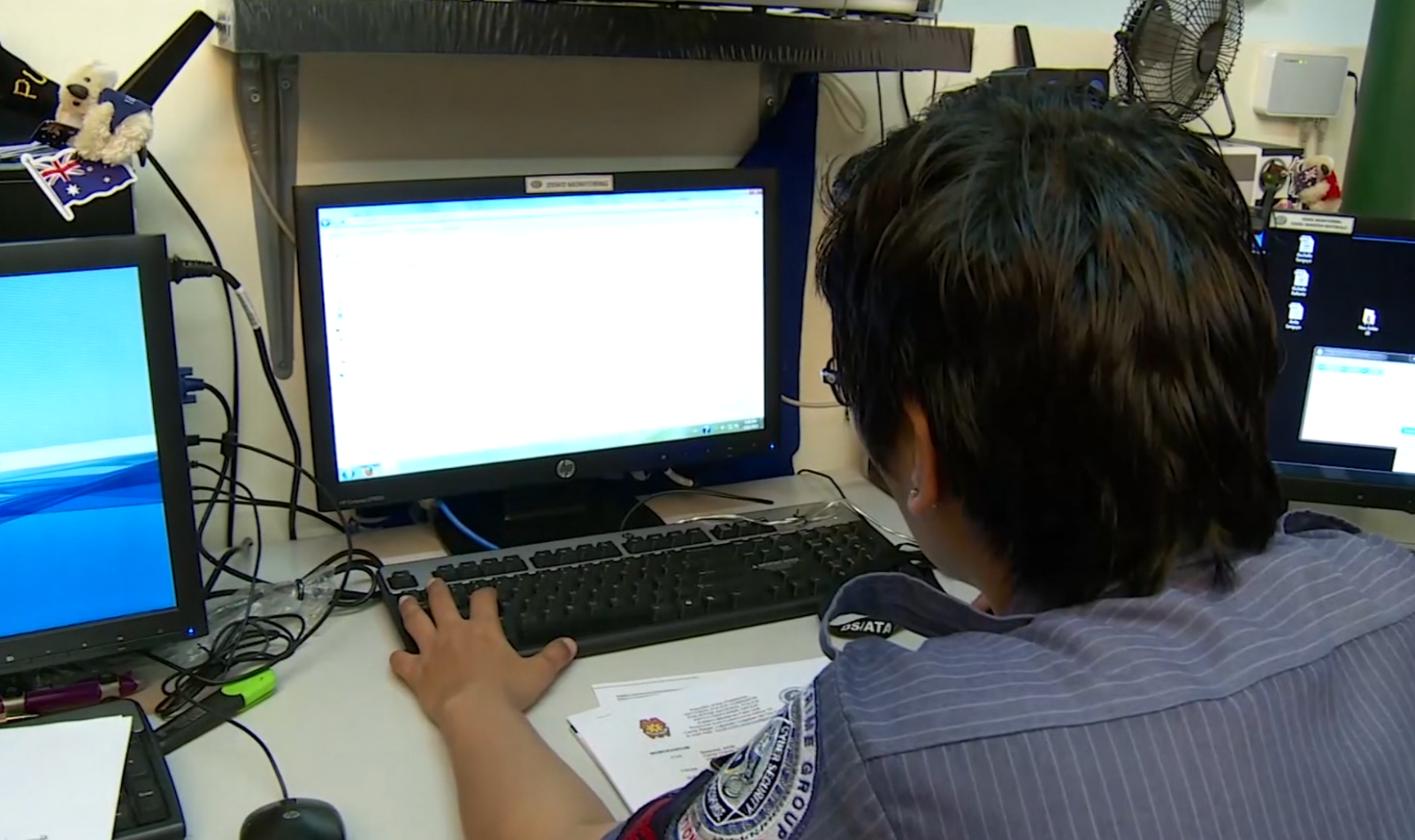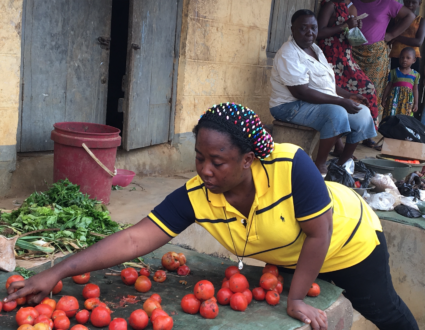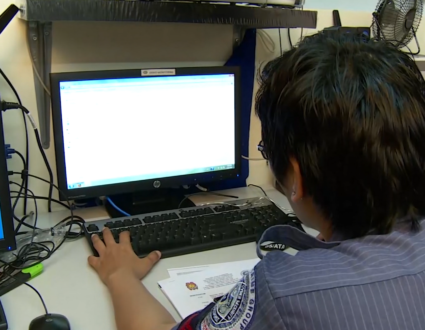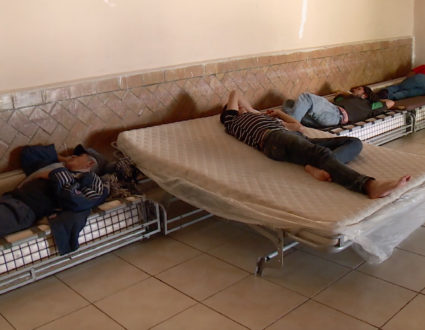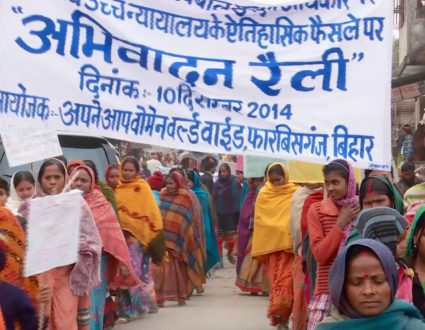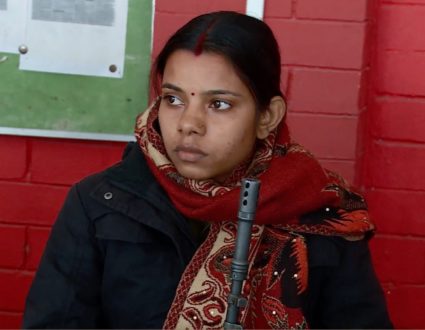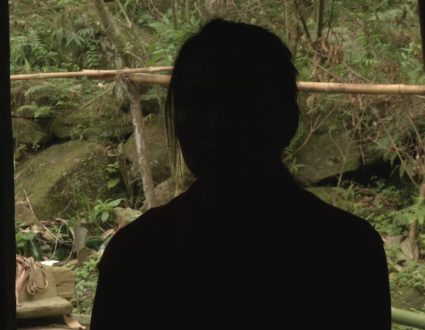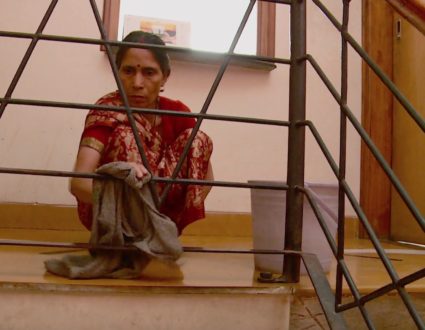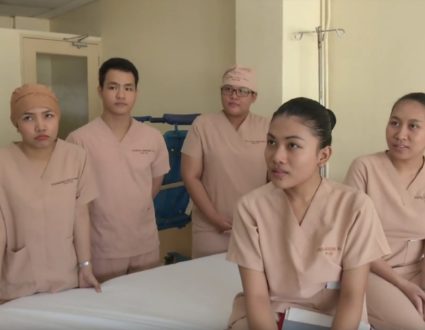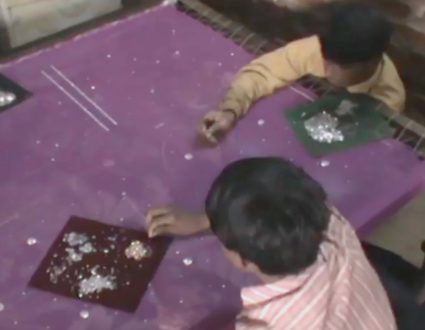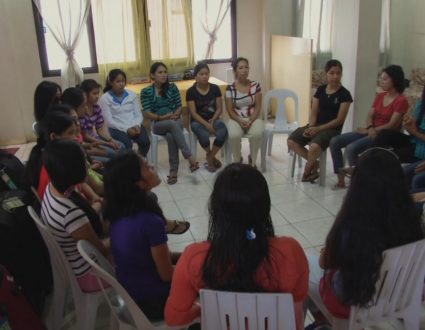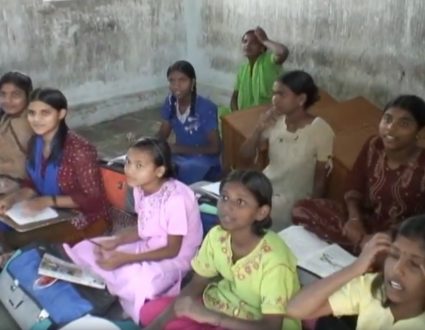JUDY WOODRUFF:
Next: a disturbing new trend in the trafficking of mostly young women and children into the sex trade.
Special correspondent Fred de Sam Lazaro reports from the Philippines on what police call cyber-trafficking.
It’s part of his ongoing series Agents for Change.
FRED DE SAM LAZARO:
Sex tourism has long been a scourge in the Philippines, an industry that thrives on trafficked human beings and deep poverty in this nation of 100 million.
Recent studies have shown that anywhere from 100 to more than 300 thousand Filipinos are trafficked each year; 80 percent, four out of five, are under the age of 18.
The government, under international pressure, has stepped up enforcement. Stings like this one to rescue young women are more common, as are arrests and convictions. But the sex trafficking industry, as always, seems a step ahead in the game.
It has expanded online.
IVY CASTILLO, Officer, Manila Police Cybercrime Center:
That’s only one but there are a lot.
FRED DE SAM LAZARO:
At the police cyber-crime center, officer Ivy Castillo explained one of the many ways that vulnerable young women are tricked into the trade.
IVY CASTILLO:
This is a fake account.
FRED DE SAM LAZARO:
Modeling is a common lure.
So, they’re pretending that this is a real modeling agency to entrap the young girls?
It has all the trappings of a glamorous fashion model agency, especially to a young rural Filipina girl.
IVY CASTILLO:
At first, they are requested to send this image.
FRED DE SAM LAZARO:
They’re asked to submit pictures that seem innocuous, facial shots, ostensibly part of the selection process.
IVY CASTILLO:
The next requirement is with a two-piece.
FRED DE SAM LAZARO:
The next steps call for more revealing images, just the torso, not the face, they’re assured, giving the false impression that it’s unidentifiable. The young woman won’t make the connection that computer software will, until it’s too late.
They have got her face from her previous, more innocent images, and have Photoshopped them with the nude ones.
IVY CASTILLO:
Yes.
FRED DE SAM LAZARO:
In no time, they are shamed and blackmailed into working for the opaque criminal networks behind the trade.
Lila Shahani is on a government task force on human trafficking.
LILA SHAHANI, Human Trafficking Task Force:
Cyber-pornography is easily one of our biggest problems. It’s proliferated very quickly. and it’s an expensive thing to police, and we’re a Third World country.
FRED DE SAM LAZARO:
But it’s an industry fueled by First World demand, from pedophiles mostly in Europe, North America, and Australia, says officer Castillo.
IVY CASTILLO:
These foreign perpetrators, they have contacts here in the Philippines, wherein these contacts are looking for children.
FRED DE SAM LAZARO:
And perhaps the most frustrating challenge with this cyber-sex industry is a social one. Cecilia Oebanda, who founded the Philippines’ largest anti-trafficking group, says many people don’t believe or don’t want to believe it’s that harmful.
CECILIA FLORES-OEBANDA, Director, Visayan Forum Foundation:
Because they think that they’re — the girls are just actually performing in the computer, and there’s no contact, there is no touch. For them, it’s OK. There’s no harm actually put to the child.
FRED DE SAM LAZARO:
At a shelter her agency runs is living proof that it’s not just emotionally abusive, but also frequently escalates. The children are invariably inducted into traditional prostitution and its daily physical abuse.
These two 15-year-olds were rescued in a police sting from a cyber-porn racket. Their alleged pimp, a man named Jerrie Arraz began as a good samaritan neighbor.
GIRL (through interpreter):
There was a time when my mother need money because my stepfather was in jail. So she asked Jerrie for help.
FRED DE SAM LAZARO:
Her mother:
WOMAN (through interpreter):
He was really kind. When we didn’t have food, he gave us food. Jerrie offered to send Gina to school.
FRED DE SAM LAZARO:
This young woman is the 11th of 12 children in a family from one of the many rural Philippine islands beset by poverty and often natural disasters.
Opportunities are scarce, so, at 12, the offer of a scholarship from a kindly stranger, a man visiting to her village, was hard to resist.
GIRL (through interpreter):
He said that he’s from Manila. So, I would say my dream is to study in Manila and to know the people, to — like, to wear nice clothes.
FRED DE SAM LAZARO:
She accompanied the man to Manila, and was placed with Arraz, with whom he was apparently associated. She was in fact placed in school, but, gradually, there were demands, and they escalated, to display herself before strangers online, then to perform sexually and with Arraz in front of the camera.
GIRL (through interpreter):
He would wake me up to say there was a customer online and he wanted us to perform while the customer was watching. Each time, it happened, I just cried.
FRED DE SAM LAZARO:
In time, the cyber-sex had escalated to plain old prostitution.
GIRL (through interpreter):
In a month, about four to five times, we met with foreign customers in a hotel, plus daily online.
FRED DE SAM LAZARO:
It was when both girls were in a hotel one day that Arraz was nabbed as he negotiated with two undercover detectives posing as customers.
JONATHAN LLEDO, Prosecutor:
There were Caucasian — Caucasian undercover agents.
FRED DE SAM LAZARO:
Prosecutor Jonathan Lledo was on the sting team, one of whose members hid in waiting.
JONATHAN LLEDO:
He was inside the closet for four hours.
And the phone call rung that signaled that money exchanged hands. And we opened the door and announced. There was bewilderment. There was:
What is happening here?
FRED DE SAM LAZARO:
The young women, in terror, ran to their trafficker and to his defense.
GIRL (through interpreter):
We always felt like Jerrie was our father, so that’s what we told rescuers. He is our father. We were really scared.
FRED DE SAM LAZARO:
It’s been called the Stockholm syndrome, Lledo says, one more complication in rescuing hostages who become sympathetic to their captor, and any change to what has become normal in their lives is unsettling.
JONATHAN LLEDO:
The trafficker is providing them with food, clothing, shelter and a place to stay, and law enforcement will disrupt all this.
FRED DE SAM LAZARO:
As it turns out, six children were removed from the home of Jerrie Arraz and placed with Oebanda’s agency, including a 1-year-old infant abandoned by its mother.
The more immediate task is to try to restore childhoods through counseling and eventually adoption into homes, education and skills training for those older.
IVY CASTILLO:
Most of our cases are referred from our foreign counterparts.
FRED DE SAM LAZARO:
Philippine police officials say most of the enforcement comes from the consumer end. Tracking down providers is fraught with difficulty. They can be anywhere, evidence against them, if it exists, hidden in the cloud instead of a hard drive.
A lot of bad guys are not being caught, right?
IVY CASTILLO:
Yes.
FRED DE SAM LAZARO:
Another big challenge is that police must rely on tips from the public, says task force member Shahani.
LILA SHAHANI:
There is a real fear of — among informants of retaliation from big syndicates.
FRED DE SAM LAZARO:
But Oebanda, who has long campaigned against trafficking, sees progress.
CECILIA FLORES OEBANDA:
Our conviction rate has more than double. So, for me, that progress is indications of the political will.
FRED DE SAM LAZARO:
Attention is now on Jerrie Arraz’s trial, now under way in Manila. These images are from his Facebook page. It’s the first so-called cyber-trafficking case to be brought, in hopes that it will mark a turning point.
For the “PBS NewsHour,” this is Fred de Sam Lazaro in Manila.
Fred’s reporting is a partnership with the Under-Told Stories Project at the University of St. Thomas in Minnesota.
Trafficking Online
Sex tourism has long been a scourge in the Philippines. But now there’s a disturbing new trend in the trafficking of mostly young women and children: vulnerable victims are being lured online and tricked into the trade. Special correspondent Fred de Sam Lazaro reports.
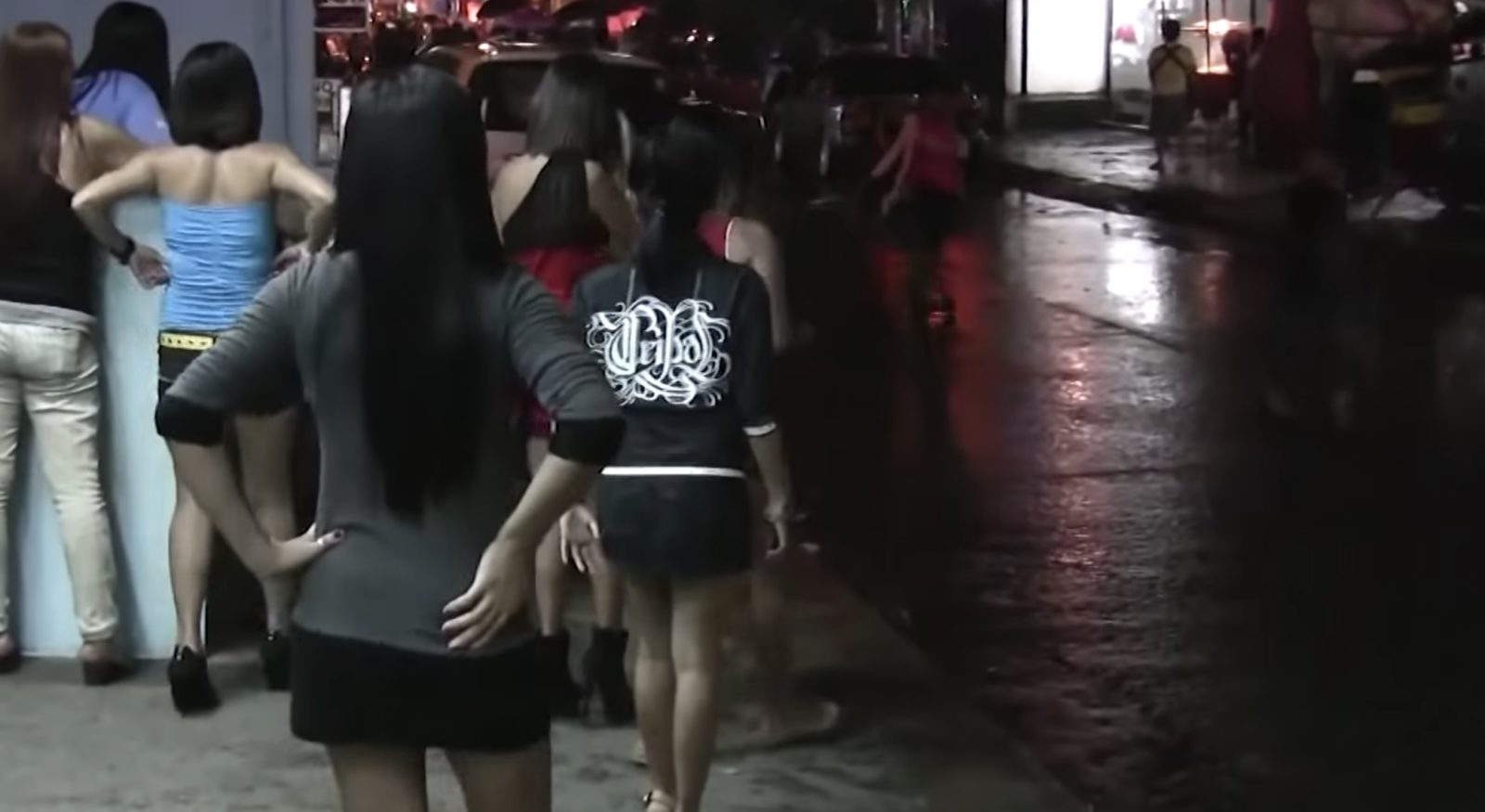
First World demand
The sex trafficking industry is fueled by pedophiles mostly in Europe, North America, and Australia, says officer Ivy Castillo.
These foreign perpetrators, they have contacts here in the Philippines, wherein these contacts are looking for children.
